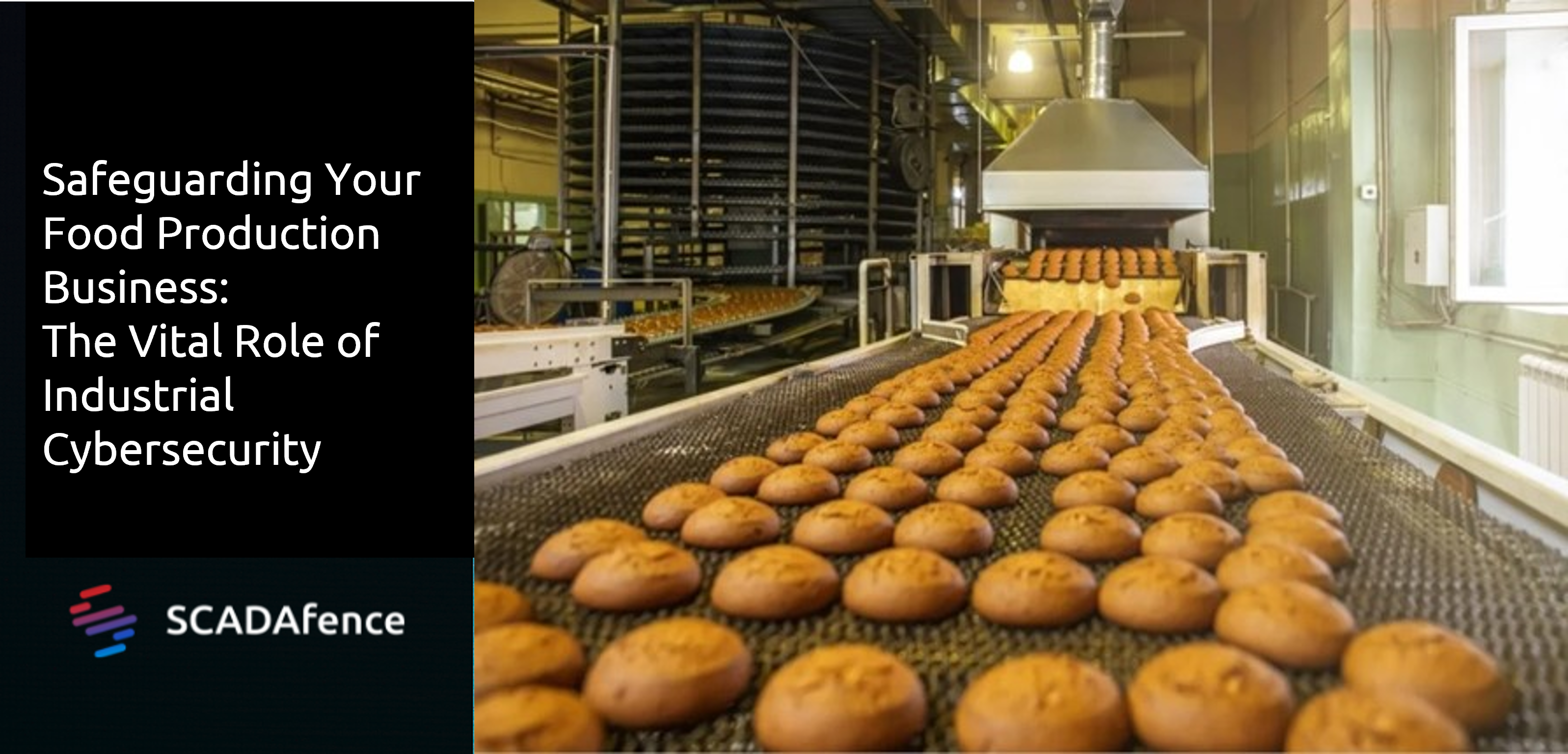In today's interconnected world, the rapid digitization of industries has brought numerous benefits, but it has also exposed them to new risks. The food production industry, a critical link in the global food supply chain, is no exception. With the rise of automation, IoT devices, and networked systems, ensuring robust cybersecurity measures in the food sector has become paramount. In this blog post, we will explore the significance of industrial cybersecurity in the food production industry and provide insights into safeguarding your business from potential threats.
1. The Growing Importance of Industrial Cybersecurity in The Food Sector
The convergence of operational technology (OT) and information technology (IT) has created vulnerabilities that threat actors and cybercriminals can exploit. The consequences of a cyber attack in the food production industry can be devastating, leading to production disruptions, compromised product integrity, reputational damage, and even risks to public health. Therefore, investing in industrial cybersecurity is a proactive approach to mitigate these risks and protect your business interests.
2. Understanding the Threat Landscape
a. Data Breaches: The valuable data stored within your systems, including intellectual property, customer information, and supply chain data, can be a prime target for hackers seeking to profit from stolen information. As a customer shared, they have spent a century cross pollinating and meticulously directing the course of their produce to achieve the best possible quality, and to lose this “recipe” or intellectual property would have catastrophic impact on their food production business line.
b. Malware and Ransomware: These malicious software can infiltrate your network, disrupt operations, and demand ransom payments to restore access. The potential impact on your food production processes can be devastating, leading to significant financial losses.
c. Insider Threats: While external threats often dominate the cybersecurity conversation, internal risks should not be ignored. Disgruntled employees or those unknowingly compromised by social engineering attacks can pose a significant threat to your industrial systems.
3. Key Steps to Strengthen Industrial Cybersecurity
a. Conduct a Comprehensive Risk Assessment: Understand your vulnerabilities and potential entry points for cyber threats within your industrial control systems. This assessment will serve as the foundation for developing a robust cybersecurity strategy.b. Implement Secure Network Architecture: Segment your network to isolate critical systems from non-essential ones, limiting access and reducing the potential for lateral movement by attackers. Employ firewalls, intrusion detection systems, and encryption technologies to fortify your network defenses.
c. Regularly Update and Patch Systems: Keep your software and firmware up to date to ensure the latest security patches are applied. This practice helps to address known vulnerabilities and minimize the risk of exploitation.
d. Educate and Train Employees: Human error remains a significant factor in successful cyber attacks. By providing cybersecurity awareness training to your staff, you can enhance their ability to identify and report potential threats, minimizing the chances of a successful breach.
e. Monitor and Respond: Implement continuous monitoring systems that provide real-time visibility into your industrial network. This allows for early detection and swift response to any suspicious activity, helping to mitigate potential damage.
4. Collaborate with Industrial Cybersecurity Experts
Given the evolving nature of cyber threats, partnering with industrial cybersecurity experts can provide your food production business with specialized knowledge and support. These professionals can assist with risk assessments, vulnerability testing, incident response planning, and ongoing monitoring, ensuring that your cybersecurity measures remain up to date.Conclusion
As the food production industry embraces digital transformation, the importance of industrial cybersecurity cannot be overstated. Protecting your operations, data, and reputation from cyber threats is an ongoing effort that demands proactive measures, employee awareness, and collaboration with cybersecurity experts. By implementing robust cybersecurity practices, you can safeguard your business, maintain consumer trust, and contribute to a more secure and resilient food supply chain.
Remember, in today's interconnected world, cybersecurity is no longer an option but an essential investment for the long-term success of your food production business.



